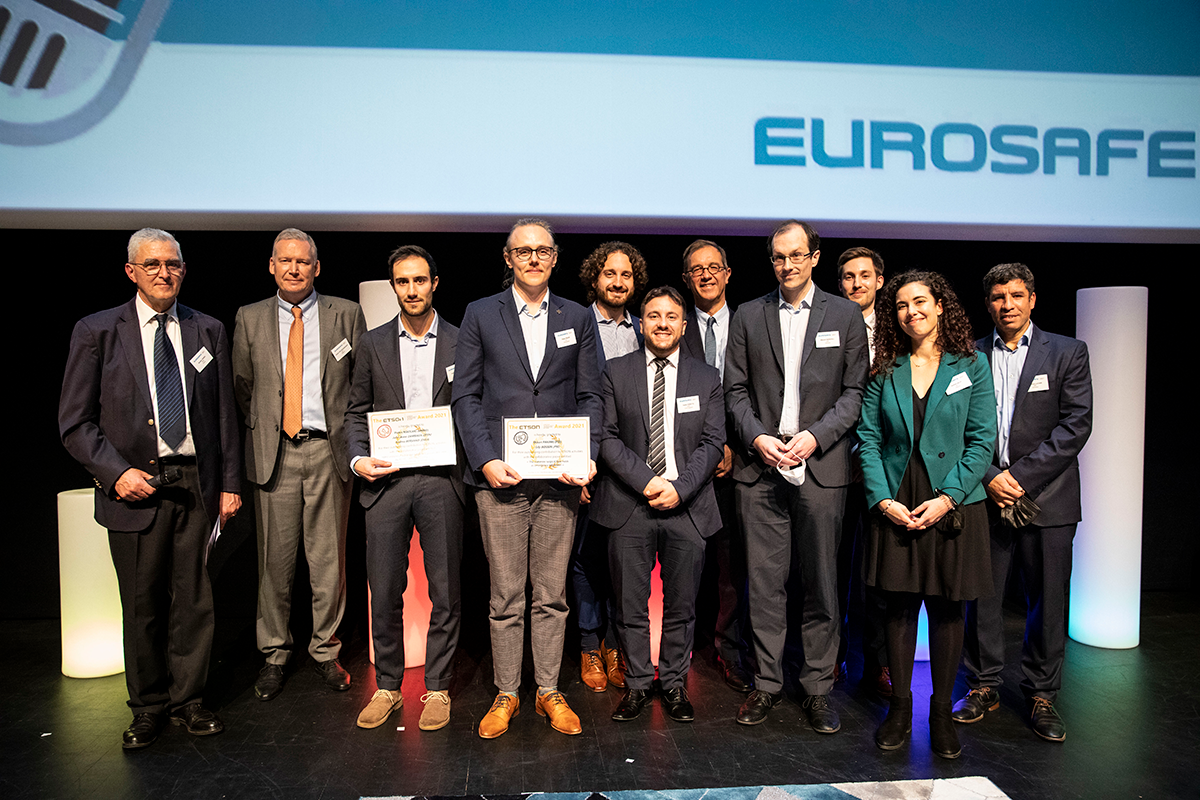The 17th edition of EUROSAFE, organized by IRSN with its ETSON partners in Paris at the "Beffroi of Montrouge» on November 22-23, 2021

The first day of EUROSAFE offered, via four seminars, a great opportunity for comparing experiences and lessons learned about recent activities of EUROSAFE Forum members and their international partners.
34 presentations were given in the fields of:
- Nuclear installation safety assessment and research
- Waste management, decommissioning, and disposal
- Radiation Protection, Environment, and EP&R (including research)
- Nuclear installation and materials security
After the technical workshops took place the “science slam” for the ETSON Award 2021, organized by the ETSON “Junior Staff Programme”. Five teams of young engineers and researchers presented their scientific and innovative contributions to safety and radiological protection. The winner is a team from ENEA and IRSN on the study of digital modelling for small modular reactor severe accident scenarios, and the second prize rewarded a team from PSI on the possible use of surgical masks as an emergency dosimeter.
The first day ended with a stimulating speech by Daniel Agacinski on "Expertise and Democracy, the impact of mistrust" an important topic, as this issue is a source of concern for decision-makers, including in the nuclear safety and radiation protection area.
The second day was the opportunity, via 3 high-level panels, to hold fruitful exchanges on strategic topics such as the role of the Public in enhancing Nuclear Safety and Radiation Protection, the upcoming challenges in Nuclear Safety Cooperation in Europe. This second day also allowed to summarize the feed back of Day 1 technical discussions.
All together, EUROSAFE 2021 provided a very productive platform for technical discussions in seminars, informal exchanges, and an overview of the European nuclear safety and radioprotection challenges in the coming years.
The TSO Café with 16 booths offered a good opportunity for exchanges and discussions. The audience appreciated in particular the following two presentations: the presentation of the TOSCA tool for the evaluation of TSO capacities at the IAEA booth and the presentation of initiatives related to openness to society including participatory science tools like OPENRADIATION.
The participation of representatives from the European Commission (Massimo Garribba, Deputy Director-general, DG Energy, responsible for the coordination of Euratom Policies), the IAEA (Lydie Evrard, Deputy Director-general, Head of the Department of Nuclear Safety and Security),the OECD/NEA (Véronique Rouyer Head of the Division of Nuclear Safety Technology and WENRA (Olivier Gupta, chairman, and Director-general of ASN), of regulators and members of ETSON enabled to share the priorities emerging from the seminars and to take into account the challenge of involvement of civil society.
The symposium "After the Fukushima Daiichi accident: adapting to the unexpected" was organized by IRSN following the EUROSAFE Forum. Ten years after the disaster at the Fukushima Daiichi power plant, IRSN discussed the results of the human and social science research it has undertaken to draw lessons from this major nuclear accident.
The question of developing the capacities of organizations in charge of nuclear risks to deal with the unexpected will be at the heart of the debates. This issue has to be addressed for crisis management but also for accident prevention and safety during the design and operation of power plants.
Jean-Christophe Niel introduced this conference, which was attended by nearly 180 participants.
Karim Ben Ouaghrem
IRSN
karim.benouaghrem@irsn.fr